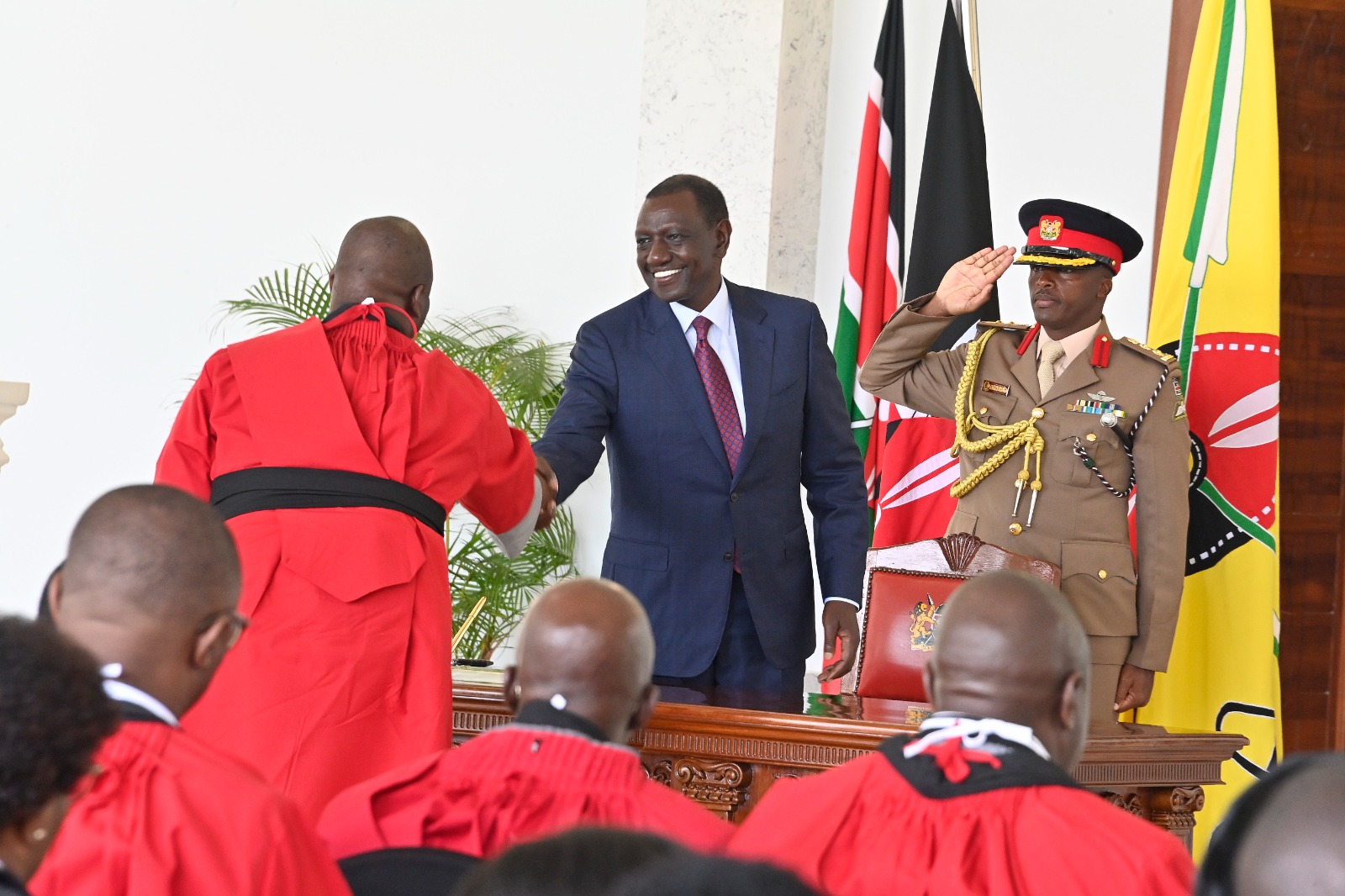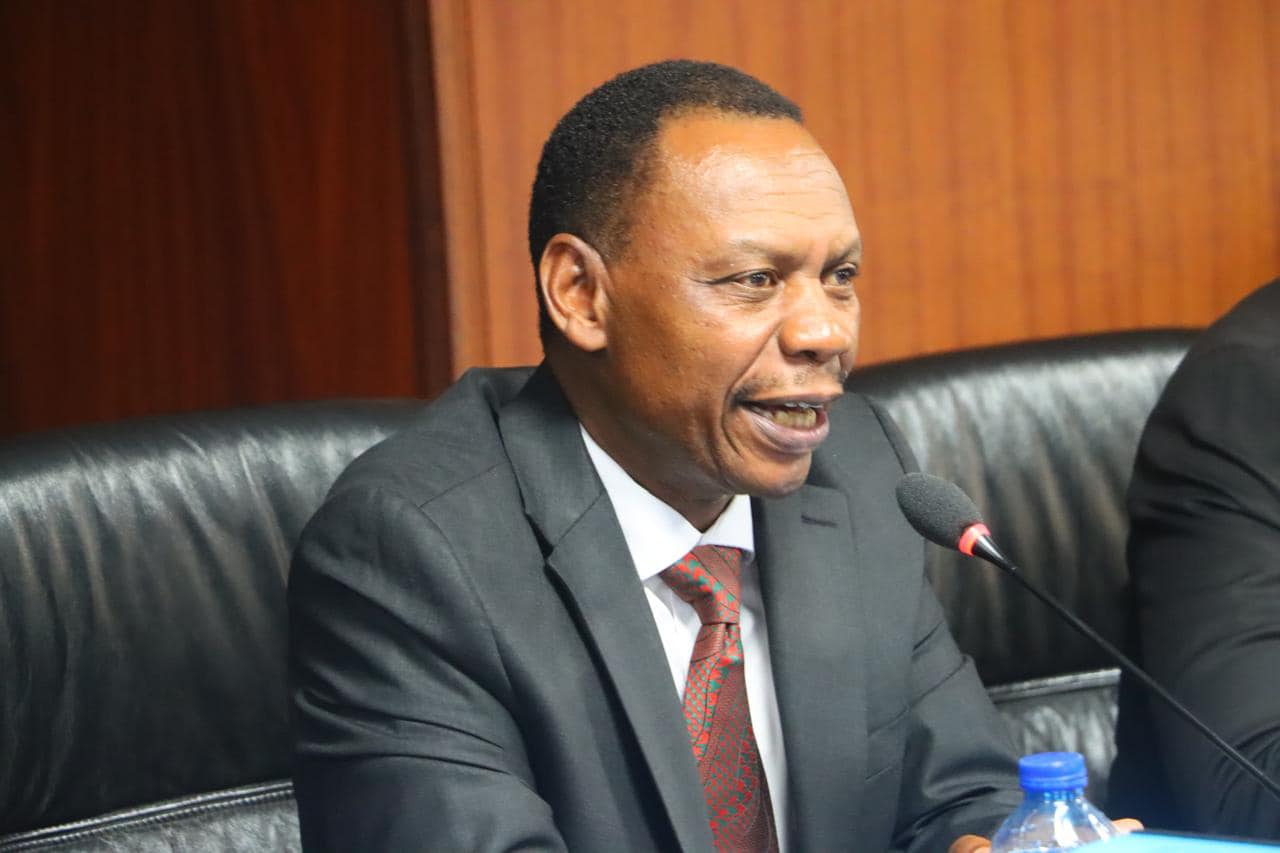Judges set for enhanced retirement perks, diplomatic privileges under new Bill before Parliament

The Bill seeks to reward judges who have served for at least 10 years with a pension upon retirement, while those with shorter service will receive a gratuity as provided by law.
Judges in Kenya could soon enjoy enhanced retirement perks if a new bill before Parliament sails through.
The Judges Retirement Benefits Bill, 2025, proposes comprehensive pension packages for retired judges, including extended benefits for their spouses and children, diplomatic privileges, and medical cover equal to that of serving judges.
More To Read
- Fresh petition seeks CJ Koome's removal from office for assigning junior judges to hear own case
- Supreme Court Judge Ouko warns of eroding public trust due to case delays, graft
- Cabinet approves Bill granting Judges special retirement benefits
- PLO Lumumba seeks meeting with CJ Koome over alleged graft in Judiciary
- Shun unfounded claims against judicial staff, Kenyans told
- High Court orders SRC to reinstate judges' Sh10 million car grant
The Bill, which has been introduced for its first reading, seeks to reward judges who have served for at least 10 years with a pension upon retirement, while those with shorter service will receive a gratuity as provided by law.
It applies to judges currently in office, those appointed after its enactment, and those who retired after 27 August 2010.
“This Bill has been under development since the late 1990s and marks a significant step toward realising the constitutional principles regarding the judiciary, its independence, and the remuneration and benefits of judges,” the bill reads.
Retired judges will be entitled to a transport allowance equivalent to one-seventh of their basic salary for 120 months, which will be paid as a lump sum.
They will also retain access to medical cover and diplomatic passports, along with the use of government lounges at Kenyan airports throughout their retirement.
For judges who retire after reaching the required age but with less than ten years of service, the proposed law provides a service gratuity calculated at one-four-hundred-and-eighth of their pensionable salary for each completed month, multiplied by five.
The Bill also addresses retirement due to mental or physical incapacity.
Such judges will receive not less than 50 per cent of the pension they would have been entitled to had they retired at the mandatory age, based on their earnings at the time of removal.
In the event of a judge's death before retirement, the surviving spouse will receive 50 per cent of what the judge would have earned in pension.
If a retired judge dies, the spouse will continue to get half of the pension, but only if the marriage occurred before retirement. Spouses who marry the judge after retirement will not qualify.
If the deceased judge is survived by more than one spouse, the gratuity will be divided equally.
Where children are also left behind, they will receive a share of the pension based on the number of children: 12.5 per cent for one, 25 per cent for two, 37.5 per cent for three, and 50 per cent for four or more.
However, children born after a judge retires or from a marriage entered into post-retirement will not qualify for benefits.
The Bill also introduces the Judges’ Retirement Benefits Fund for those appointed after its enactment, with contributions and management handled by a Board of Trustees.
The Cabinet Secretary will have the authority to decide how benefits for children are distributed, ensuring that their welfare is prioritised.
Top Stories Today
Reader Comments
Trending













































